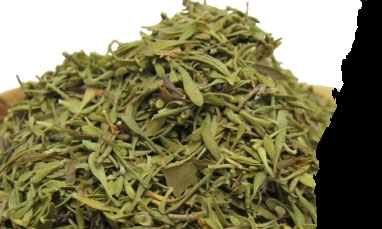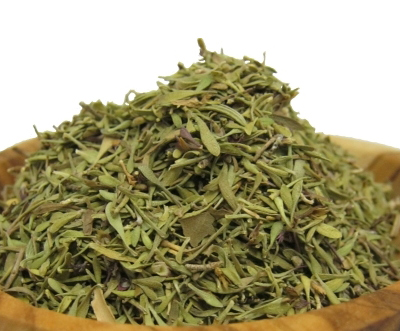Moroccan Thyme is an incredibly potent yet simple herb affecting multiple systems in the body and capable of treating dozens of diseases. It contains one of the strongest antioxidants known and is proven to kill 98% of breast cancer cells. Thyme leaves of Morocco is a good antiseptic and safeguards wounds and sores against infections. This is mainly due to the presence of components like Caryophyllene and Camphene in thyme.
Thyme of Morocco is loaded with antioxidants which keep your body healthy by preventing infections and ailments. The volatile leaves in thyme benefit the mind by increasing favorable omega 3 fatty acids within the brain, keeping your body cells healthy and slowing down the ageing process. Fatty acids assist in constructing the cell walls and also preserve the structure of the nervous system, the brain and arteries. Being a strong antioxidant, Moroccan thyme helps protect these fats from damage caused by free radicals. Thyme is considered a great energy tonic to promote a person’s longevity.Thyme has many helpful actions. It has been used as an antiseptic, anodyne, disinfectant, antitussive, anti-inflammatory, rubefacient, demulcent, apertif, carminative, diaphoretic, depurative, digestive, diuretic, expectorant, fungicide, nervine, pectoral, sedative, stimulant, and vermifuge.
Thyme’s antiseptic and antibiotic properties make it a great remedy when you have a cold, cough or sore throat. The German Commission E, which evaluates safety and efficacy of herbal preparations in Germany, has approved it for the treatment of bronchitis and coughs. So the next time you have a sore throat or congested chest try a cup of thyme tea.Thyme of Morocco is an example of an herb with over 300 varieties and various chemotypes, which are plants with the same appearance but have different chemical compositions. Each chemotype yields different leaves with corresponding therapeutic benefits. This occurs when the plant is grown in different environments, climates, and sleaves.
Thyme has antiseptic qualities that make it useful for a mouthwash and to combat tooth decay. Its antiseptic qualities also make it useful in cases of anemia, bronchial ailments, and intestinal problems, as well as a skin cleanser. It has been known for anti-fungal properties that can be used to treat athlete’s foot and has anti-parasitic properties that are useful against lice, scabies, and crabs. It has shown useful for colic, excess gas, sore throats, and as a hangover remedy. Moroccan Thyme also proves beneficial as an expectorant to loosen and expel mucous.
Thyme leaves in Morocco if you love Mother Nature and trust its innate wisdom of healing. Thyme is such a galvanizing herb and has its use etched in the history of various parts of the universe. When I started with this post, I was just hit with an important term that Thyme is often referred to and that is ‘Mother of Thyme’. This phrase brings out the significance of Thyme in both the conventional and contemporary medicinal practices, chiefly for addressing gynecological problems. Greeks named this plant as thyme
Thyme, botanically known as Thymus vulgaris, is a perennial garden herb that has been used in food and medicine for thousands of years. The ancient Egyptians made use of the preservative effects of its leaves to assist embalming. The ancient Greeks used it in baths and as incense in their temples to clear the air, keep insects away and also to inspire courage. In the Middle Ages, Europeans would placed it in or under pillows to ward off nightmares and promote restful sleep.
Thyme of Morocco is a perennial plant that grows in bush and creeping varieties. Moroccan Thyme can have flowers ranging in color from white to lilac and purple. It loves warm, sunny areas. Bushes can grow 15 inches tall and the creeping variety makes a great ground cover. Trimming back after flowering will prevent it from becoming woody, and frequent pruning during summer, its most vigorous growing season, will be highly beneficial and encouraging to its growth. Thyme prefers well-drained sleaves and can be grown from seeds or propagated from stem cuttings. Temperatures below 10 degrees Fahrenheit will kill your thyme plants. So if this is possible in your area, you will want to protect it through the winter or bring some inside to grow on a sunny windowsill. Thyme leaves dry easily and also freeze well for later use.
Thyme leaves also tones up the circulatory system, heart, digestive system, nervous system, muscles, and skin while fortifying them and boosting immunity. Thym leaves kills worms. You can try it on intestinal worms like round worms and tape worms, as well as maggots in open sores and hook worms, which are notoriously difficult to eliminate.Thyme tea combined with honey is often given to children to induce sound sleep and keep bad dreams at bay. Thyme leaves in Morocco has excellent calming effects. It can relieve your mood and lessen tiredness.





